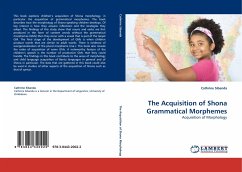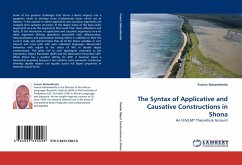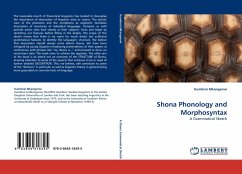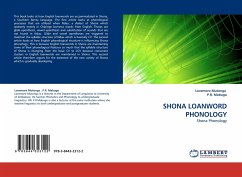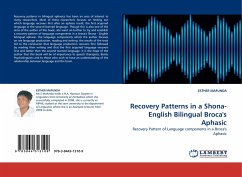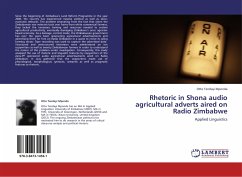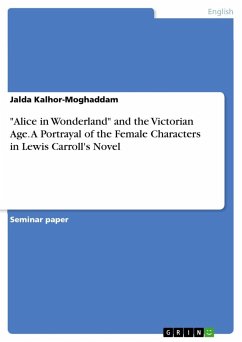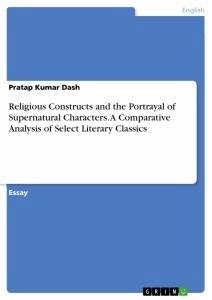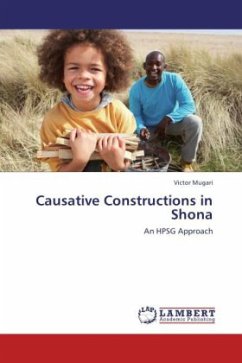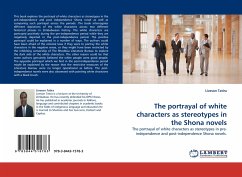
The portrayal of white characters as stereotypes in the Shona novels
The portrayal of white characters as stereotypes in pre-independence and post-independence Shona novels.
Versandkostenfrei!
Versandfertig in 6-10 Tagen
32,99 €
inkl. MwSt.

PAYBACK Punkte
16 °P sammeln!
This book explores the portrayal of white characters as stereotypes in the pre-independence and post independence Shona novel as well as comparing such portrayal across the periods. The book interrogates different depictions of the white characters across two different historical phases in Zimbabwean history. The white characters are portrayed positively during the pre-independence period while they are negatively depicted in the post-independence period. The positive portrayal could be explained in a number of ways. The authors could have been afraid of the colonial laws if they were to portr...
This book explores the portrayal of white characters as stereotypes in the pre-independence and post independence Shona novel as well as comparing such portrayal across the periods. The book interrogates different depictions of the white characters across two different historical phases in Zimbabwean history. The white characters are portrayed positively during the pre-independence period while they are negatively depicted in the post-independence period. The positive portrayal could be explained in a number of ways. The authors could have been afraid of the colonial laws if they were to portray the white characters in the negative sense, or they might have been restricted by the inhibiting censorship of The Rhodesia Literature Bureau to explore the dark side of the white characters. The other reason could be that some authors genuinely believed the white people were good people. The opposite portrayal which we find in the post-independence period might be explained by the reasonthat the restrictive measures of the Literature Bureau were no longer operational as before. The post-independence novels were also obssessed with painting white characters with a black brush.



